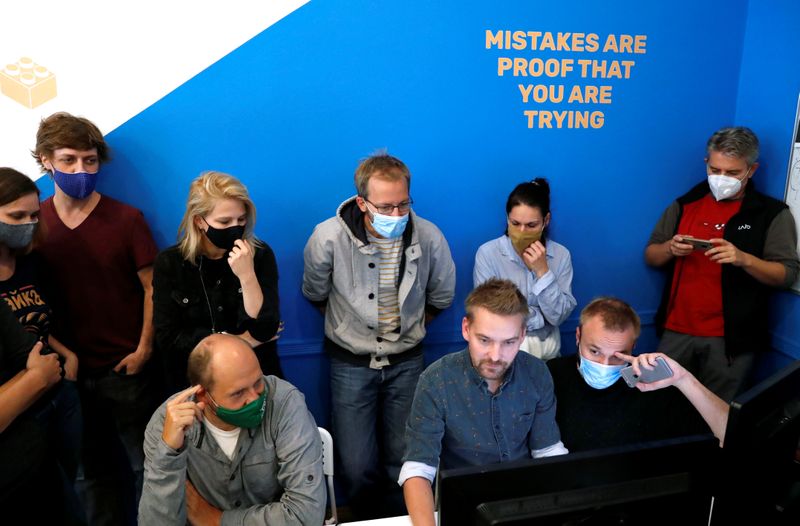BUDAPEST (Reuters) – Political journalist Attila Rovo began work on Friday at Hungary’s latest experiment in independent journalism – a crowd-funded online news service called Telex.
Operating from a small apartment near the Danube and financed solely by donations from more than 34,000 readers, Telex is an attempt to break free from what Rovo and other critics describe as growing government influence over Hungary’s media via owners supportive of Prime Minister Viktor Orban.
Rovo, 40, has worked for the state radio and three privately-owned websites over the past decade. He was fired from the radio in 2011, shortly after Orban’s government took control of state media. He quit all three websites due to what he said was state meddling that threatened his journalistic integrity.
The last website was Index, then the largest independent news site in Hungary. Rovo’s career there ended on July 24 when the staff of Index resigned en masse over what they called an “open attempt to exert pressure” on the site after its owner sacked their editor-in-chief.
“We started to feel like the frog in a pan of cold water that’s slowly being cooked… The frog says it’s OK, it is still OK, but then the water suddenly starts boiling,” said Rovo.
Telex is being set up by 60-70 former Index journalists, with Rovo as its new deputy editor-in-chief.
The European Union and pro-democracy groups have long accused Orban’s nationalist government of curbing media and other freedoms, a charge it denies.
In a report this week, the European Commission said state advertising was being channeled to pro-government outlets, leading to “indirect political influence over the media”.
“Independent media outlets face systematic obstruction and intimidation, while a trend of economic takeover of such outlets raises additional concern,” the EU executive said.
Government spokesman Zoltan Kovacs said in an emailed comment to Reuters that the EU report was “absurd and untrue”.
“THE AIR IS GETTING THINNER”
Rovo said he had not experienced direct political interference over content at Index.
But after pro-government businessman Miklos Vaszily acquired significant control over Index’s funding this year, Rovo said financial pressure had increased, for example in threats to cut editorial jobs despite strong sales.
When the editor-in-chief was dismissed, it was time to leave, the soft-spoken Rovo added.
In emailed comments to Reuters, Vaszily said that after he acquired a 50% stake in Indamedia – the company that controls Index’s funding – he took no part personally in its operational decisions or in any negotiations between Indamedia and Index.
He said Indamedia had demanded greater cost efficiency from Index due to the worse than initially expected impact of the coronavirus pandemic on the outlook for advertising revenues.
As journalists set up their computers in the new Telex office, editor-in-chief Veronika Munk said they had enough funds for several months – including a promised donation of 200,000 euros from Czech media group Economia – and that the eventual aim was for Telex to become subscription-based.
Despite the challenges, Rovo said, journalists in Hungary are free to write what they want without fear of being jailed but that they need to escape the pressures exerted by the owners of media outlets and funding channels.
“They (the government) are gradually tightening (control), the air is getting thinner. And you don’t even know who is doing it, as it is not a politician, or the prime minister, or a party… but people who act on their behalf.”
(Reporting by Krisztina Than; Editing by Gareth Jones)





















